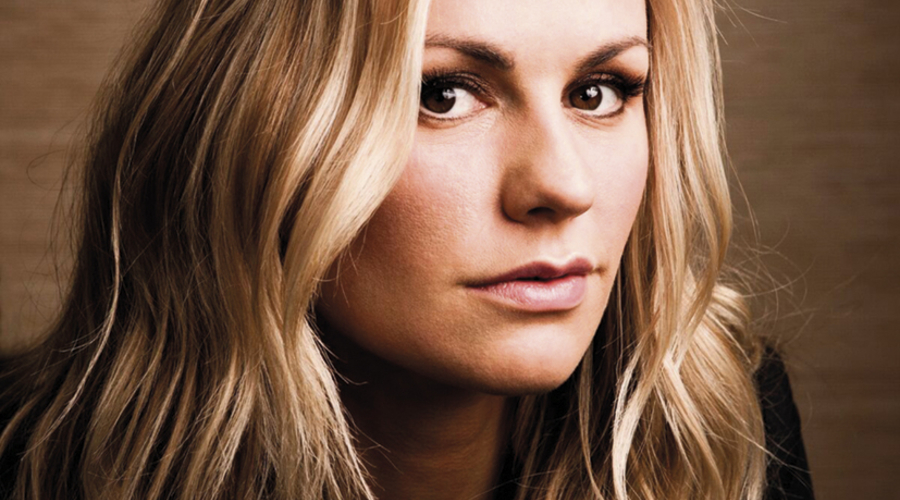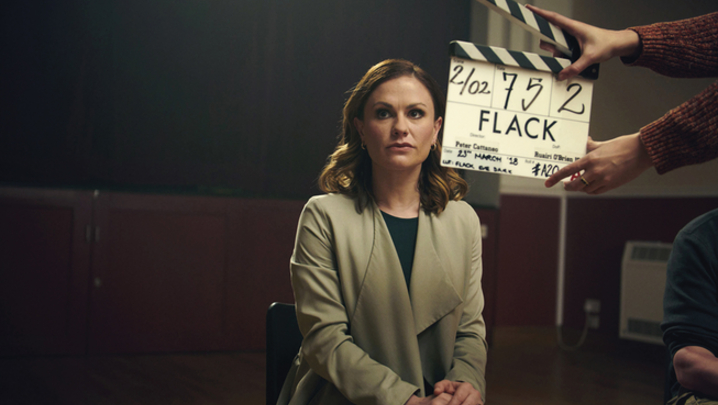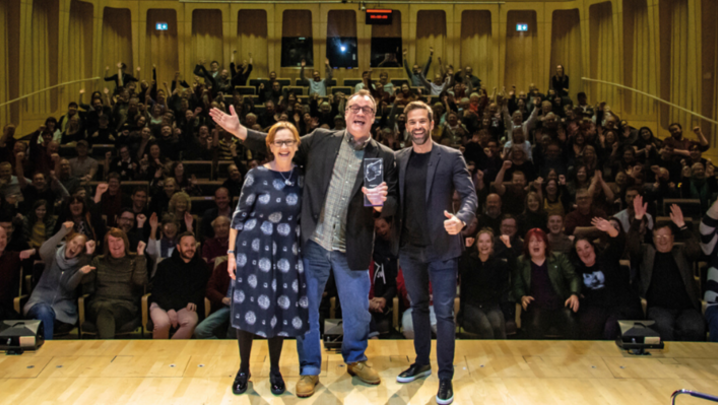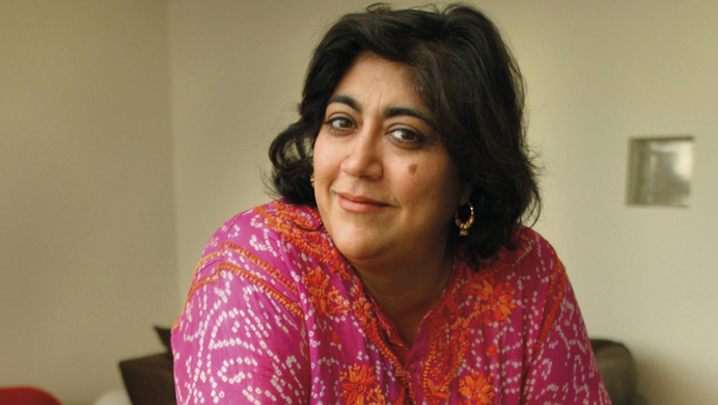The multichannel broadcaster, UKTV, is raising its game by commissioning new dramas. Ed Gove investigates.
For almost a decade, UKTV, currently owned jointly by BBC Studios and Discovery, has been screening innovative and successful original entertainment shows. Over the past five years, the number of original shows has grown fivefold. Today, UKTV commissions in every genre, other than children’s, news and current affairs.
Chief Executive Darren Childs unveiled this strategy of supplementing an archive-led schedule with shows commissioned in-house in late 2010. An early hit was Dynamo: Magician Impossible, a risky and relatively expensive project for the 11-channel network. More recently, comedy panel show Taskmaster became a breakout hit, earning award nominations on both sides of the Atlantic.
"The appetite of audiences [for drama] is absolutely enormous and has been building"
The network is now turning its attention to TV’s most expensive and competitive genre: drama series. The aim is to further differentiate UKTV from rival content providers.
In March, the broadcaster appointed its first dedicated drama executive, Philippa Collie Cousins, who joins the team this month. Developing new writing talent is already part of Collie Cousins’ skill set – she was head of drama and comedy development at Hartswood Films, where she worked on the award-winning Sherlock.
UKTV’s new drama originals include four crime and thriller series, each six-parters, for pay-channel Alibi. After premiering there, the crime shows will air for free on Drama. In addition, there is a six-part PR story, Flack, starring Anna Paquin, best known for her role in HBO’s True Blood, for female-focused channel W.
Director of commissioning Richard Watsham explains: “I think the appetite of audiences [for drama] is absolutely enormous and has been building. I don’t see that dropping off.… The opportunity to commission our own original content in that space felt too good to miss.”

He dismisses any suggestion that the drama market is saturated, and highlights the success of UKTV’s Drama channel, which grew its audience by 7% in 2017, making it, alongside Dave, the UK’s top non-PSB channel.
“This is an opportunity for us to create some origination that absolutely nails and defines the tone of voice of those channels,” Watsham emphasises.
The shows being green-lit are a mix of “spikier” reputational pieces and procedurals, an area which, he notes, has been “lean of late”.
He declines to put a figure on UKTV’s investment in drama. The shift to commissioned drama is not so much a policy shift as simply the next step in UKTV’s journey in ordering original shows.
The extension from comedy formats, such as Taskmaster, to comedy-dramas, such as 2017’s Murder on the Blackpool Express (Gold’s most popular programme to date, with an audience of 1.8 million, according to Barb), has been careful and deliberate.
“Great storytelling isn’t about the size of the budget"
“I actually don’t see it as ‘we do comedy and we do drama’,” Watsham reasons. “We’re doing scripted content… We’re already playing in that space.”
However, being the new face on the drama block does bring challenges. Can UKTV compete with the sheer firepower and deep pockets of its competitors? Even the BBC is still working out the best way to compete effectively with new streaming competitors such as Netflix.
“When we talk about making great drama, it is us working with the same producers that BBC One or ITV or Channel 4 work with,” he explains. “Great storytelling isn’t about the size of the budget.
“With the high-end tax credit in place, and budgets north of £1m per hour, we should have enough money to support quality storytelling.”
UKTV’s first drama series, Flack, is produced by Hat Trick, and stars Paquin as a London-based American PR, with RTS winner Sophie Okonedo as her cutthroat boss.
Hat Trick Managing Director Jimmy Mulville reckons that UKTV could have a bright future in drama. “If it can make a couple of shows that make a splash and turn a few heads, that’s good for everybody,” he says. “The challenge for UKTV is getting an audience to watch the show.”
It’s a challenge that Watsham is happy to accept: “The lucky thing is that we are somewhere that people go to for drama. It’s a genre around which we have built two entire channels [Alibi and Drama].”
Flack is a co-production with US entertainment channel Pop – a model that UKTV intends to replicate across all its dramas. “We have to have partners,” says Watsham. “We’re not going to fully fund those shows and, frankly, it wouldn’t make good financial sense for us to do so.
“Does that mean we can’t make really risky projects? Yes, probably. Drama is a risky area, anyway. In terms of doing riskier, more domestic, pieces, I think that will probably come later on.”
Although international sales may be on the cards in the long term, for now, securing UK rights is the main requirement of each deal.
The priority is to plough as much money as possible into commissioned dramas through production partners “that aren’t stepping on [our] ambitions to broadcast in this territory”, says Watsham.
In a newly created role, Ronan Hand joins this month from ITV Studios as director of programme funding. He will be working to support the policy across all genres, drawing together commercial partnerships, co-productions and programme distribution deals to fund upcoming UKTV commissions.
“The thing about having relationships with your customers is that they need to be based on honesty, and the ability to have those awkward conversations when you need to have them"
The broadcaster has long been underestimated by the public and by programme-makers, Watsham believes. But the success of its original commissioning is changing that perception. No longer do they receive proposals “with BBC Three crossed out and Dave written on top in crayon”, he laughs. “The quality, breadth and innovation of what we’re doing, and the risk in certain areas, all provide an opportunity for producers and talent that they may not get elsewhere.”
That will be fundamental to the success of UKTV’s move into drama series, he believes, and which he hopes will lead to some long-running, returning shows. “Our opportunity doesn’t just come from co-production partnerships. It doesn’t just come from my budget going up. It comes from the number of brilliant ideas that come through the door.”
Producers seem to appreciate UKTV’s more hands-off approach. “They’re not micromanagers,” says Mulville. “The thing about having relationships with your customers is that they need to be based on honesty, and the ability to have those awkward conversations when you need to have them… but UKTV is not on the phone every five minutes.”
It is this reputation that will protect UKTV’s commissioning ambitions in the wake of any changes in the company’s ownership, Watsham believes.
When Discovery completed its acquisition of Scripps earlier this year, it also took over the 50% of UKTV owned by Scripps, and triggered a change-of-control clause. This grants BBC Studios the option to acquire the 50% of UKTV that it does not already own. As yet, there has been no news of a definite bid, but reports suggest that this could be as high as £500m.
Ownership by a single organisation could be expected to affect the broadcaster’s commissioning ambitions. But Richard Watsham does not anticipate major change: “If we keep providing opportunity for… talent of all types to come and do their best work, and to do work they couldn’t do elsewhere, then we’re going to be in the best position, whatever comes up.”
Regardless of what the future holds, he is confident that UKTV can deliver the calibre of drama that its audience demands: “There is no better time.… Now it is Alibi’s chance to step into the spotlight.”







